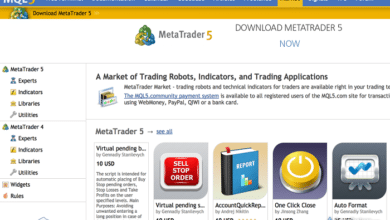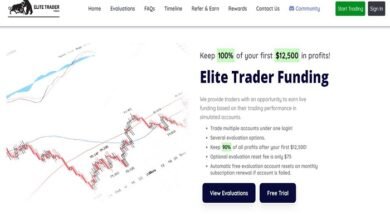
In the world of finance, a broker plays a pivotal role, especially in trading. This guide will delve into what a broker is in trading, exploring their responsibilities, the various types, and how they influence the trading landscape. Whether you’re new to trading or looking to refine your understanding, this article provides essential insights into the brokerage industry.
What is a Broker in Trading?
A broker in trading acts as an intermediary between buyers and sellers, facilitating transactions in markets such as stocks, bonds, commodities, and forex. Brokers are licensed professionals who provide access to trading platforms, offer advice, and execute orders on behalf of their clients. Understanding the role of a broker is fundamental to navigating the trading markets effectively.
Types of Brokers in Trading
There are several types of brokers in trading, including full-service brokers, discount brokers, and online brokers. Full-service brokers offer a wide range of personalized financial advice and services, whereas discount brokers provide fewer services but at a lower cost. Online brokers, on the other hand, offer a platform for traders to execute trades directly.
How Brokers Facilitate Trading
Brokers facilitate trading by providing traders with the tools and resources needed to execute trades efficiently. This includes market research, trading platforms, and strategic advice. They also handle order execution, ensuring that transactions are completed swiftly and at the best possible prices.
The Importance of Regulation in Brokerage
Regulation is crucial in the brokerage industry to ensure transparency and protect investor interests. Regulatory bodies such as the Securities and Exchange Commission (SEC) in the U.S. and the Financial Conduct Authority (FCA) in the UK oversee brokers’ operations, setting standards that promote fairness and integrity in trading.
Choosing the Right Broker for Your Trading Needs
Choosing the right broker is critical to a trader’s success. Factors to consider include the broker’s reputation, the fees charged, the range of services offered, and the trading platforms available. It’s also important to consider the type of trader you are and the level of support you require.
The Impact of Technology on Brokerage Services
Technology has significantly transformed brokerage services. Today’s brokers offer advanced trading platforms that feature real-time data, analytical tools, and automated trading options. Technology also facilitates faster and more efficient trade execution, which is essential for maximizing potential returns.
Broker Fees and Commissions
Understanding the fees and commissions charged by brokers is crucial for traders. These can include transaction fees, account maintenance fees, and charges for additional services. Knowing these costs is essential for effective financial planning and strategy development in trading.
The Role of Brokers in Risk Management
Brokers also play a key role in risk management by offering tools and strategies to help traders mitigate risks. This can include features like stop-loss orders, diversification strategies, and real-time alerts about market conditions.
Comparing Traditional Brokers vs. Robo-Advisors
The rise of robo-advisors presents an alternative to traditional brokers, offering automated, algorithm-driven financial planning services with minimal human intervention. Comparing these options depends largely on the trader’s personal preference, level of expertise, and the complexity of their trading needs.
Future Trends in Brokerage Services
The brokerage industry continues to evolve, with trends pointing towards more personalized services, increased regulatory scrutiny, and further advancements in technology. Staying informed about these trends is crucial for traders and brokers alike to adapt and thrive in the trading environment.
Conclusion
what a broker is in trading is essential for anyone involved in the financial markets. Brokers not only facilitate transactions but also provide valuable insights, advice, and tools to help traders make informed decisions. As the trading landscape continues to evolve, the role of the broker will undoubtedly adapt, but their core function as intermediaries in the financial markets will remain vital.
FAQs
1.What is a broker in trading?
A broker in trading is a licensed individual or firm that acts as an intermediary between an investor and the securities market, facilitating the buying and selling of stocks and other securities.
2.How do brokers make money?
Brokers typically earn through commissions or fees charged on transactions, account management, and sometimes by offering additional advisory services.
3.What is the difference between a stockbroker and a forex broker?
A stockbroker deals primarily with buying and selling stocks and other securities on stock exchanges, while a forex broker specializes in currency trading.
4.Can brokers trade for themselves?
Yes, brokers can trade for themselves, but they must adhere to strict regulatory rules designed to prevent conflicts of interest and protect their clients.
5.How important is choosing the right broker?
Choosing the right broker is crucial as it can affect both the quality of service you receive and your trading performance. Factors to consider include trading needs, costs, and the level of support provided.





